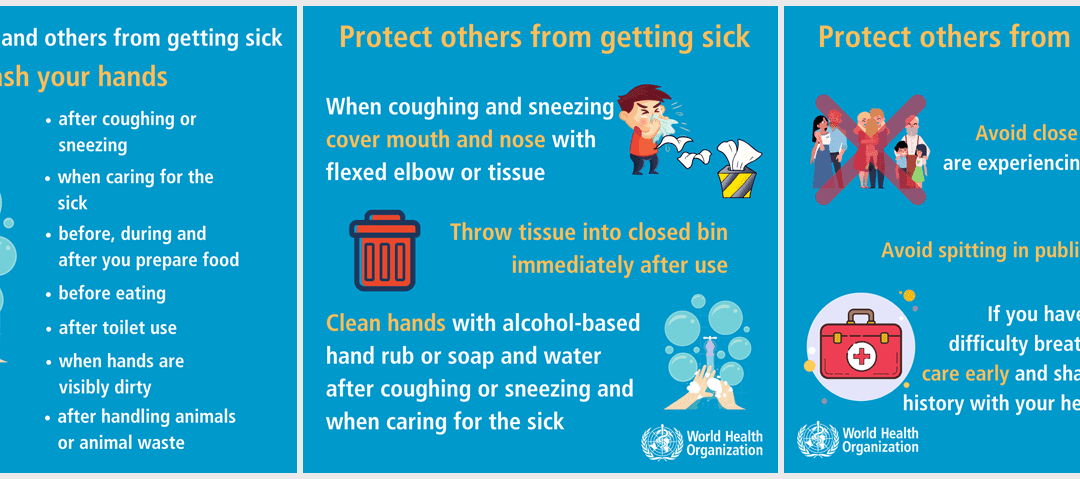From Cathy Xiao Chen and our friends at Impact Hub Stockholm:
The World Health Organization (WHO) predicted the next epidemic. Not as a matter of if, but as a question of when. Globalization and our lifestyles in the 21st century exacerbate the risks and spread of infectious diseases. The good news is that it is manageable. The bad news is that with unequal access to quality healthcare services, the ability to travel around the world at a fast pace, forced migration due to conflict and natural disasters, global trade, homelessness, and growing global population; we can expect to continue experiencing epidemics for the foreseeable future.
What makes epidemics in the 21st century more dangerous than they were in the past, and the potential for them to become pandemics, is our ability to travel from one side of the world to the other and introduce a new disease to multiple populations before even showing symptoms. In 2015, it took just one traveler returning home to South Korea from spending time in the Middle East to bring MERS back with him. The consequences: a national outbreak, 186 cases, 36 deaths, and outbreak-related losses of approximately US$ 8 billion, all in the space of two months.
Given our history, WHO predicts, with a high degree of certainty, that when the next epidemic comes, there will be:
- an initial delay in recognizing it;
- a serious impact on travel and trade;
- a public reaction that includes anxiety, or even panic and confusion, and
- this will be aided and abetted by media coverage.
I think it’s safe to say that we have witnessed all four predictions during this current outbreak of coronavirus. Recent public reaction teetering on panic has led to a knife fight and physical assault over toilet paper in supermarkets in Australia, despite 60% of toilet paper manufacturing occurring locally, and leading manufacturers expecting no disruption to supply.
So what can you do to protect yourself at work and prevent the spread of infectious diseases?
Washing your hands thoroughly with soap is the most important preventative action you can take. Make sure you scrub the back of your hands, palms, fingertips and nails, in-between your fingers and your thumbs. Use hand sanitizer if you’re in a situation where hand washing is not an option. Try to wash your hands after touching any common items like door handles, shared desks and coffee pot. If you’re not sure whether you’re washing your hands correctly, watch this video.
Do not touch your face, nose, eyes and mouth as this provides a pathway for infection. This is easier said than done. The Director of the Santa Clara County’s Public Health Department in California recommended the same advice during a press conference on Feb 28 before subconsciously licking her finger to turn the page. The NY Times shared 4 tips to help you break the habit or you could try a different approach if you work on your laptop all day concocted by DoNotTouchYourFace.com.
Avoid touching or being in the close vicinity of anyone who shows symptoms including coughing, sneezing, and runny nose. If you usually offer events for people who frequent high-risk areas or work in a high-risk area yourself, you might want to consider offering online webinars instead. This could actually help your business grow in the long run by making your sales pitch scaleable.
Use an alcohol-based cleaning spray to wipe down shared surfaces such as meeting room desks, chairs and door handles in-between use. People invariably tend to spray saliva when they talk and coronavirus is thought to be spread through moisture droplets, so make sure you wipe down surfaces in conversational areas before touching them. While this protects you from anything left behind from the previous meeting, you need to continue to protect yourself during your meeting as well. Remember to sit at least 1 meter away from other people. This is easiest done by choosing a conference room with a large table and facing away from the person sitting closest to you when you speak.
Avoid crowds to reduce your risk of infection from others. This could mean going to work earlier or later to avoid peak hour travel on public transportation. If you have flexible working hours and a busy workplace, you could try working earlier in the morning or later in the evening. International conferences around the world with over 1000 expected guests are being canceled. If you follow the recommended hygiene advice, events shouldn’t pose too much of a risk as long as you are not mingling with people who have recently traveled to high-risk areas and have not self-isolated.
Avoid traveling to high-risk areas. If you do have to travel, make sure you self-isolate for 14 days before returning to work to make sure you’re not infected. This period of self-quarantine is to make sure you don’t spread an infectious disease before any symptoms appear. Opt for virtual meetings with international colleagues or frequent travelers if you can to avoid putting yourself at risk.
If you are sick, work from home and avoid visiting public places and events to prevent spreading your infection to others. You could experience very mild symptoms but other people might not be so lucky. High-risk factors aside from age are not always obvious to the eye so the best way to protect others is to stay away from other people. Isolation alone is suggested by studies to have a greater impact than all other interventions.
Do not go to the hospital if you think you could be contagious. Always call ahead and follow the advice given to you by a medical practitioner. It’s important that you provide advanced notice so front line staff can prepare and protect themselves from being infected. It takes years to train new doctors and nurses and if they get sick, it puts a far greater burden on the remaining staff which can weaken the healthcare system.
You can find the latest updates from Folkhälsomyndigheten. Call 113 13 if you have any questions about the coronavirus.
Interested in learning more? The European Centre for Disease Prevention and Control has now made online micro learning activities on non-pharmaceutical countermeasures in relation to COVID-19 available online.
Go to the Ministry for Foreign Affairs to read more about how the Swedish Government is taking action and find frequently asked questions about international travel. You’ll need to translate the Swedish website as the information is not currently available in English.
“Can we create a pandemic-free world? There is no such thing as a guarantee, but with meticulous preparation and rapid response, we can prevent most outbreaks from getting out of control, and limit the impact of those that spread internationally.” – Dr Tedros Adhanom Ghebreyesus, Director-General of the World Health Organization
Managing epidemics: key facts about major deadly diseases. Geneva: World Health Organization; 2018. Licence: CC BY-NC-SA 3.0 IGO.
AUTHOR:
Cathy Xiao Chen is the Head of Operations at Impact Hub Stockholm. With a passion for supporting social impact, she advises and connects changemakers with collaborators to maximize impact.

